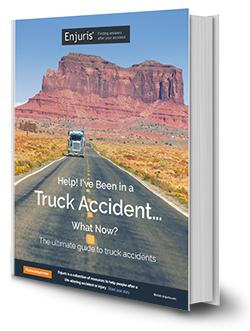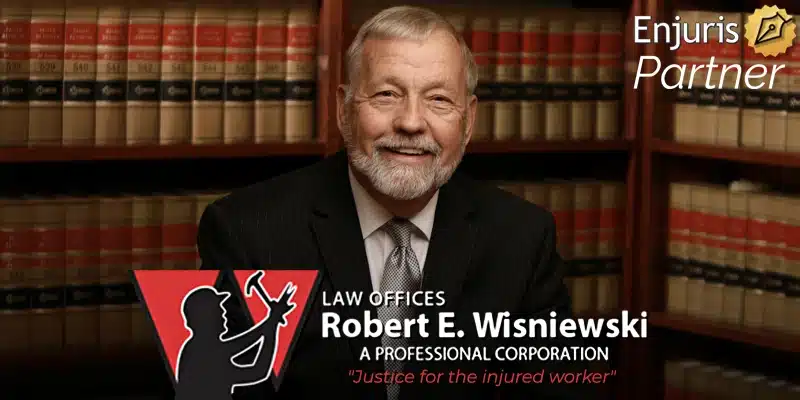A guide to commercial truck accidents and how they differ from car accidents
If you're involved in a truck accident in Arizona, you'll face questions that don't generally come up after a simple traffic accident. For example, is the truck driver liable for the accident or the truck driver's employer? If you're the truck driver, can you receive workers' compensation benefits?
Understanding the common causes of truck crashes, the relationship of the people and entities connected with the truck, and the potential damages available to you can help clarify some of the questions that often arise after a truck accident.
What vehicles qualify as “trucks”?
In Arizona, a “truck” is defined as any motor vehicle used primarily for carrying property other than the personal property of the driver or passengers.
In some cases, the specific characteristics of the truck (such as the gross vehicle weight) determine whether a certain law applies. But, generally speaking, when people refer to a “truck accident,” they're referring to a crash involving a large commercial vehicle, such as:
- Delivery truck
- 18-wheeler
- Oil and gas truck
- Big rig
- Semi-truck
- Tractor trailer
- Box truck
- Dump truck
- Tow truck
- Refrigerated truck
Statistics and causes of truck accidents
According to the Federal Motor Carrier Safety Administration (FMCSA), the number of people injured (not including fatalities) in truck crashes every year across the nation has almost doubled since 2009, from 74,000 people to 145,000 people.
The chart below summarizes crash data by injury severity in 2016 (the last year for which the data is available).
| Truck Accident Statistics: Annual Injuries (2016) | |
|---|---|
| Injury Severity | Persons Injured |
| Suspected Serious Injury | 14,000 |
| Suspected Minor Injury | 56,000 |
| Possible Injury | 73,000 |
| Injured, Severity Unknown | 2,000 |
| Total | 145,000 |
| Source: Federal Motor Carrier Safety Administration (FMCSA) | |
The number of people killed in truck accidents has also gone up significantly since 2009, from 3,380 people in 2009 to 4,317 people in 2016. In Arizona, 69 people were killed in truck accidents in 2016.
These statistics don't include the number of truck accidents that resulted only in property damage, such as the rollover accident earlier this year that resulted in 40,000 pounds of liquid chocolate spilling onto Interstate 40 in Flagstaff.
The FMCSA conducted an extensive review of truck accidents across the country back in 2007 and determined that there are 3 main types of truck accidents:
- Running out of the travel lane, either into another lane or off the road (32%)
- Vehicle loss of control due to traveling too fast for conditions, cargo shift, vehicle systems failure, or poor road conditions (29%)
- Colliding with the rear end of another vehicle in the truck's travel lane (22%)
The FMCSA further investigated the actions that lead to truck accidents and found that they could generally be broken down as follows:
- Non-performance (12%): The driver fell asleep, was disabled by a heart attack or seizure, or was physically impaired for another reason.
- Recognition (28%): The driver was inattentive, was distracted by something inside or outside the vehicle, or failed to observe the situation adequately for some other reason.
- Decision (38%): The driver was driving too fast for conditions, misjudged the speed of other vehicles, or followed other vehicles too closely.
- Performance (9%): The driver panicked, overcompensated, or exercised poor directional control.
- Vehicle (10%): Vehicle failures, such as brake problems.
- Environment (3%): Fog, heavy rain, bad weather or roadway problems.
Injuries and damages available
Trucks can legally weigh up to 80,000 pounds (40 tons). To put this in perspective, the average car weighs about 4,000 pounds.
Due to the massive size of commercial trucks, injuries are often very serious. Common truck accident injuries include:
- Back and neck injuries
- Broken bones
- Head injuries
- Traumatic brain injuries
- Internal injuries
- Lacerations
- Spinal cord injuries and paralysis
- Death
Here is a breakdown of what's included in the two categories:
| Types of Truck Accident Damages in Arizona | |
|---|---|
| Economic Damages | Non-economic Damages |
| Property damage | Pain and suffering |
| Medical expenses | Emotional distress |
| Estimated future medical expenses | Loss of consortium |
| Lost income | Loss of enjoyment of life |
| Other out of pocket costs (e.g., travel costs) | Other non-monetary losses (e.g., loss of reputation) |
Arizona awards both economic damages and non-economic damages in truck accident cases. Economic damages refer to monetary losses resulting from an accident. Non-economic damages refer to losses that don't have a clear dollar value.
In addition, Arizona awards punitive damages in rare cases. Punitive damages are meant to punish the defendant and are awarded when a defendant's behavior was willful or particularly egregious. For example, punitive damages may be awarded if the truck driver that caused the accident was driving while intoxicated.
While some states enforce damage caps, Arizona doesn't cap personal injury damages in most cases. However, there's an important exception to this rule that may apply to your truck accident.
Under Arizona statute, public entities and employees are immune from punitive damages. This means that neither a public entity nor a public employee acting within the scope of their employment can be held liable for punitive damages.
For example, if you're rear-ended by a dump truck that is owned and operated by the Phoenix Public Works Department, punitive damages wouldn't be available (though economic and non-economic damages would still be available).
Tweet this
Injured while driving a truck for work in Arizona
In addition to having the option of filing a personal injury lawsuit, truck drivers who are injured in an accident during the course of their employment have the option of filing a workers' compensation claim.
Workers' compensation is a form of insurance that pays medical expenses and lost wages to employees who are injured while doing their job.
In Arizona, workers' compensation is a “no-fault” insurance system. This means that valid claims are paid regardless of who's to blame for the accident. In other words, even if the truck driver is at fault for the accident, the truck driver can still receive workers' compensation benefits so long as the accident wasn't intentional.
Arizona workers' compensation pays medical expenses, wage loss benefits, and death benefits for certain dependents.
Laws governing truck accidents
When it comes to truck accidents, both federal and state laws play a role.
Federal laws govern the trucking industry and establish certain standards that trucking companies and drivers must meet. These regulations can be found in Title 49 of the Code of Federal Regulations.
In addition to the federal laws that must be followed, Arizona has its own laws governing trucks that are intended to keep truck drivers and other motorists on the road safe. These laws can be found in Title 28 of the Arizona Revised Statutes.
Here is a sampling of some of the Arizona laws:
- A.R.S. 28-709 prohibits trucks from driving more than 65 miles per hour.
- A.R.S. 28-1095 sets the maximum length for various types of trucks. For example, the length of a semitrailer operating in a truck tractor-semitrailer combination must not exceed 57 feet and 6 inches.
- A.R.S. 28-958.01 requires trucks to be equipped with rear splash guards that help minimize the amount of debris that could be thrown at the vehicles following behind the truck.
Determining fault in Arizona truck accidents
After an accident, the insurance companies and personal injury lawyers will attempt to determine who's at fault for the accident.
In truck accident cases, determining who's at fault usually means determining who was negligent (i.e., failed to exercise reasonable care). Often this is the truck driver, but not always. Others that could be at fault for a truck accident include:
- The trucking company. The trucking company may be found at fault (or partially at fault) if they violated one of the federal or state laws (such as requiring the truck driver to drive a load larger or for a longer period than permitted).
- The cargo company. One common cause of truck accidents is overloaded or improperly loaded cargo. In these situations, the cargo company may be at fault.
- The manufacturer. Truck accidents may be caused by a defective vehicle (such as an improperly designed trailer hitch that causes the trailer to come loose). In these situations, the manufacturer of the defective product might be at fault.
Sometimes, both the truck driver (or other party associated with the truck) and the motorist involved in the collision are at fault. So what happens then?
Arizona follows the pure comparative fault theory. Under this theory, the amount of damages a plaintiff can recover is reduced by a percentage that reflects the plaintiff's degree of fault – no matter what that percentage may be.
For example, let's say Bill is driving an 18-wheeler on the highway. He's following the station wagon in front of him too closely. The station wagon is driven by Diane. Diane drops her phone and when she reaches to pick it up she accidently slams on her brakes. Bill rear-ends Diane's station wagon. Diane decides to sue Bill and the court determines that Bill was 70% at fault for the accident, while Diane was 30% at fault.
In this scenario, Diane would only be able to recover 70% of her damages due to Arizona's pure comparative fault laws.
The statute of limitations in Arizona for most personal injury claims is 2 years. This means that you have to file your lawsuit within 2 years or the defendant can have the lawsuit dismissed. However, if you're suing a public entity or employee, you must file your lawsuit within 1 year and you must also file a notice of claim within 180 days.
When is the company liable for the driver's conduct?
In Arizona, the legal theory of “respondeat superior” can be used to hold a company responsible for a truck accident caused by its truck driver employee. Under this theory, the employer is liable for the actions of its employee so long as the acts were:
- Unintentional; and
- Committed within the scope of the employee's employment and in furtherance of the employer's business.
A truck accident attorney can help you determine whether the company should be sued in addition to the employee. In general, including the employer in your lawsuit increases your chances of recovery, as the employer generally has deeper pockets.
What to do after a truck accident
If you're involved in a truck accident, there are some steps you'll want to take immediately:
- Assess the health and safety of yourself and others, and seek medical treatment right away.
- Call the police and be sure they draft an accident report (and be sure that your version of the events is included in the report).
- Obtain contact information from the truck driver, including their name, address, telephone number, driver's license number, and insurance information.
- Talk to and obtain the contact information for any witnesses at the scene.
Dealing with the aftermath of a truck accident can be more complicated and traumatic than dealing with the aftermath of a simple car accident. Consider contacting an experienced Arizona personal injury attorney to help you through the process.
Did you know that truck accident law varies by state?
Need a lawyer?
What does an injury lawyer do?
A personal injury lawyer helps individuals who have sustained injuries in accidents to recover financial compensation. These funds are often needed to pay for medical treatment, make up for lost wages and provide compensation for injuries suffered. Sometimes a case that seems simple at first may become more complicated. In these cases, consider hiring an experienced personal injury lawyer. Read more















